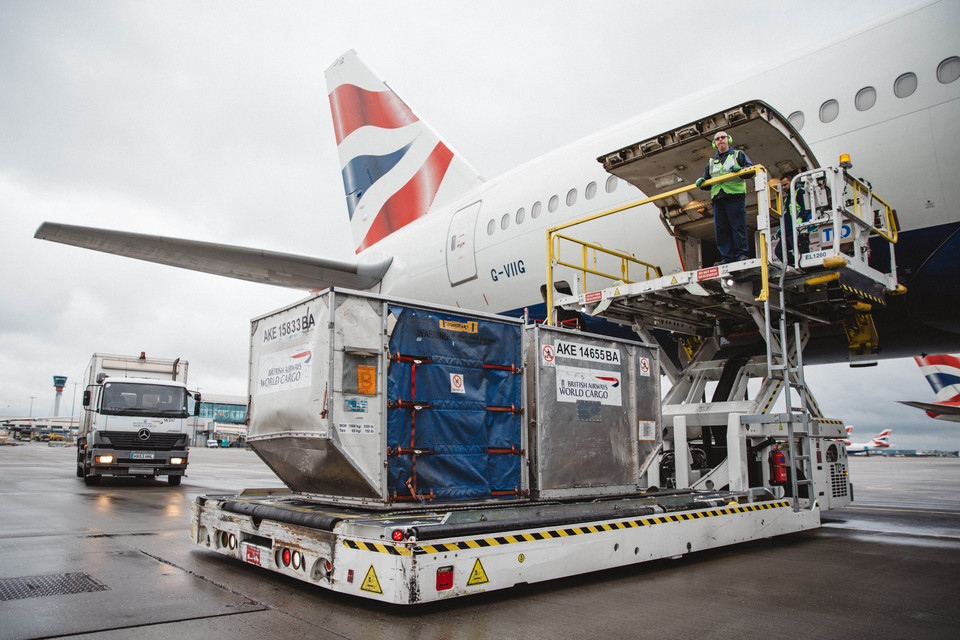Free Airline Revenue Management Analyst course (4months)
Airline Revenue management analyst analyses and takes appropriate actions regarding airline seat inventory management.
Brief Job Description of Airline Revenue Management Analyst: Revenue analysts regularly review an airline’s seat inventory management and related business practices. In addition to monitoring the performance, they identify revenue control risks, develop and implement seat inventory pricing plans.
Personal Attributes Airline Revenue Management Analyst: Airline Revenue Management Analyst attributes would include good communication skills and a strong analytical thought process.


Revenue management and revenue analysis of Airline Revenue Management Analyst:-
revenue management and revenue analysis of Airline Revenue Management Analyst:
PC1. perform analysis of relevant commercial data and development of market strategies
PC2. perform strategy implementation in the revenue management system
PC3. perform assigned routes revenue optimization on daily basis by deciding on the best possible price strategy and seat availability
PC4. perform analysis of historical data to identify trends in the existing markets and emerging of new ones
PC5. perform flight performance analysis through relevant commercial reports on regular basis
PC6. perform constant monitoring and analysis of relevant competitors
PC7. perform development of demand forecasting of the assigned flights based on performance and reporting it to the Management
PC8. use different marketing tools to facilitate achievement of company’s revenue goals
PC9. regularly communicate with the team members and Management
regarding relevant issues of Airline Revenue Management Analyst
PC10.prepare all management reports as required by the organisation.
Organisational Context of Airline Revenue Management Analyst:

KA1. revenue risk management as defined within the organisational policy and procedures
KA2. organisation’s procedures for sale of revenue seats
KA3. the limits of responsibility for dealing with revenue management KA4. escalation procedures and matrix for discrepancies observed
Technical Knowledge of Airline Revenue Management Analyst:

KB1. application of operations research on revenue data KB2. use of statistical techniques
KB3. how to use forecasting techniques
KB4. advanced mathematics and application of mathematics
Core Skills/ Generic Skills

| Writing Skills |
| The user/ individual on the job needs to know and understand how to: SA1. complete accurately well written report in English language detailing the situations of emergency with attention to detail |
| Reading Skills |
| The user/individual on the job needs to know and understand how to: SA2. read instructions/guidelines/procedures/rules |
| Oral Communication (Listening and Speaking skills) |
| The user/individual on the job needs to know and understand how to: SA3. listen to and orally communicate information with all concerned |
Professional Skills of Airline Revenue Management Analyst:

| Decision Making |
| The user/individual on the job needs to know and understand how to: SB1. make decisions on a suitable course of action or response if permitted by the authority matrix |
| Plan and Organize |
| The user/individual on the job needs to know and understand how to: SB2. monitor efficient functioning of all activities SB3. plan and organise work to achieve targets and deadlines |
| Customer Centricity |
| The user/individual on the job needs to know and understand how to: SB4. communicate with internal customers in a courteous manner SB5. maintain cordial working relationship |
| Problem Solving |
| The user/individual on the job needs to know and understand how to: SB6. identify trends/common causes for errors and suggest possible solutions to the supervisor / management SB7. identify and correct errors |
| Analytical Thinking |
| The user/individual on the job needs to know and understand how to: SB8. analyse best possible solutions (cost, time, effort, etc.) suited for operations. Critical Thinking The user/individual on the job needs to know and understand how to: SB9. concentrate on task at hand and complete it without errors SB10. apply balanced judgments to different situations  Work Effectively in a Team Performance Criteria Support the work team PC1. display courteous and helpful behaviour at all times. PC2. take opportunities to enhance the level of assistance offered to colleagues. PC3. meet all reasonable requests for assistance within acceptable workplace timeframes. PC4. complete allocated tasks as required. PC5. seek assistance when difficulties arise. PC6. use questioning techniques to clarify instructions or responsibilities. PC7. identify and display a non discriminatory attitude in all contacts with customers and other staff members. Maintain personal presentation PC8. observe appropriate dress code and presentation as required by the workplace, job role and level of customer contact. PC9. follow personal hygiene procedures according to organisational policy and relevant legislation Develop effective work habits PC10. interpret, confirm and act on workplace information, instructions and procedures relevant to the particular task. PC11. interpret, confirm and act on legal requirements in regard to anti- discrimination, sexual harassment and bullying. PC12. ask questions to seek and clarify workplace information. PC13. plan and organise daily work routine within the scope of the job role. PC14. prioritise and complete tasks according to required timeframes. PC15. identify work and personal priorities and achieve a balance between competing priorities. Knowledge and Understanding Organisational Context KA1. the policies and procedures relating to the job role. KA2. the value system of the organisation. KA3. employee rights and obligations. KA4. the reporting hierarchy and escalation matrix. Technical Knowledge KB1. ask questions to identify and confirm requirements. KB2. follow routine instructions through clear and direct communication. KB3. use language and concepts appropriate to cultural differences. KB4. use and interpret non-verbal communication. KB5. the scope of information or materials required within the parameters of the job role. KB6. consequences of poor team participation on job outcomes. KB7. work health and safety requirements. Core Skills/ Generic Skills Writing Skills, On the job the individual needs to be able to: SA1. complete documentation accurately. SA2. write simple reports when required. Reading Skills On the job the individual needs to be able to: SA3. read information accurately. SA4. read and interpret data sheets. Oral Communication (Listening and Speaking skills) The user/individual on the job needs to know and understand how to: SA5. listen to and orally communicate information with all concerned  Professional Skills Decision Making On the job the individual needs to be able to: SB1. make appropriate decisions regarding the responsibilities of the job role. Plan and Organise The user/individual on the job needs to know and understand how to: SB2. monitor efficient functioning of all activities SB3. plan and organise work to achieve targets and deadlines Customer Centricity The user/individual on the job needs to know and understand how to: SB4. communicate with passengers and other stakeholders in a courteous manner SB5. maintain effective work relationship Problem Solving The user/individual on the job needs to know and understand how to: SB6. identify trends/common causes for errors and suggest possible solutions to the supervisor / management SB7. identify and correct errors Analytical Thinking The user/individual on the job needs to know and understand how to: SB8. analyse best possible solutions (cost, time, effort, etc.) suited for operations Critical Thinking The user/individual on the job needs to know and understand how to: SB9. concentrate on task at hand and complete it without errors SB10. apply balanced judgments to different situations Model Curriculum Airline Revenue Management Analyst Perform revenue management and revenue analysis perform analysis of relevant commercial data and development of market strategies perform strategy implementation in the revenue management system perform assigned routes revenue optimization on daily basis by deciding on the best possible price strategy and seat availability perform analysis of historical data to identify trends in the existing markets and emerging of new ones perform flight performance analysis through relevant commercial reports on regular basis perform constant monitoring and analysis of relevant competitors perform development of demand forecasting of the assigned flights based on performance and reporting it to the Management use different marketing tools to facilitate achievement of company’s revenue goals regularly communicate with the team members and Management regarding relevant issues prepare all management reports as required by the organisation Work Effectively in a Team · display courteous and helpful behaviour at all times. take opportunities to enhance the level of assistance offered to colleagues. meet all reasonable requests for assistance within acceptable workplace timeframes. complete allocated tasks as required. seek assistance when difficulties arise. use questioning techniques to clarify instructions or responsibilities. identify and display a non-discriminatory attitude i n all contacts with customers and other staff members. observe appropriate dress code and presentation as required by theworkplace, job role and level of customer contact. follow personal hygiene procedures according to organisational policy and relevant legislation. interpret, confirm and act on workplace information, instructions and procedures relevant to the particular task interpret, confirm and act on legal requirements in regard to antidiscrimination, sexual harassment and bullying. ask questions to seek and clarify workplace information. plan and organise daily work routine within the scope of the job role prioritise and complete tasks according to required timeframes identify work and personal priorities and achieve a balance between competing priorities Unique equipment used; PC/ laptop/ palmtop with ticketing system software Concerned wall charts ERP software like SAP, Tally, etc.  Guidelines for Assessment 1. Criteria for assessment for each Qualification Pack will be created by the Sector Skill Council. Each Performance Criteria (PC) will be assigned marks proportional to its importance in NOS. SSC will also lay down proportion of marks for Theory and Skills Practical for each PC 2. The assessment for the theory part will be based on knowledge bank of questions created by the SSC 3. Individual assessment agencies will create unique question papers for theory part for each candidate at each examination/training center (as per assessment criteria below) 4. Individual assessment agencies will create unique evaluations for skill practical for every student at each examination/training center based on this criteria 5. To pass the Qualification Pack, every trainee should score a minimum of 50% in aggregate 6. The marks are allocated PC wise, however, every NOS will carry a weightage in the total marks allocated to the specific QP |







